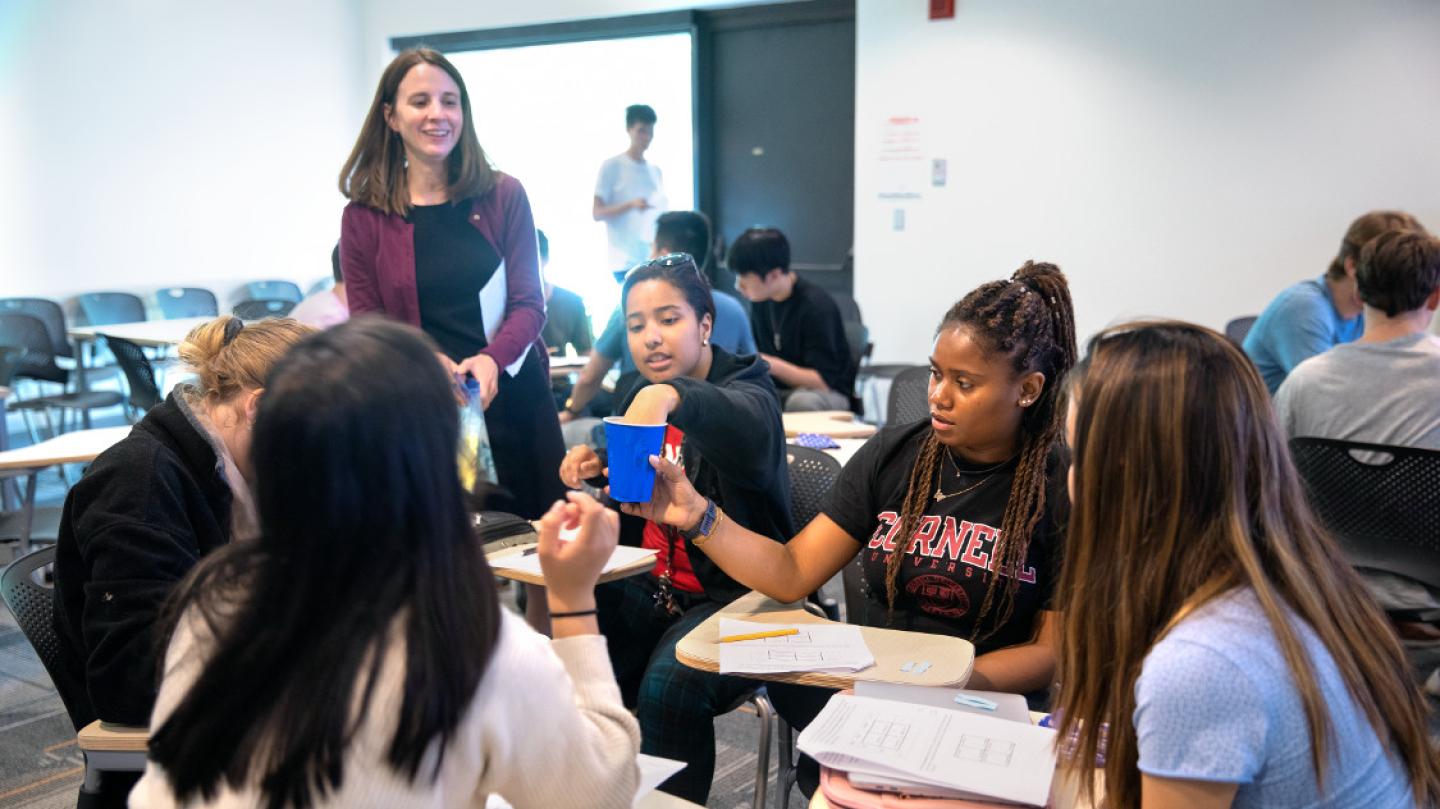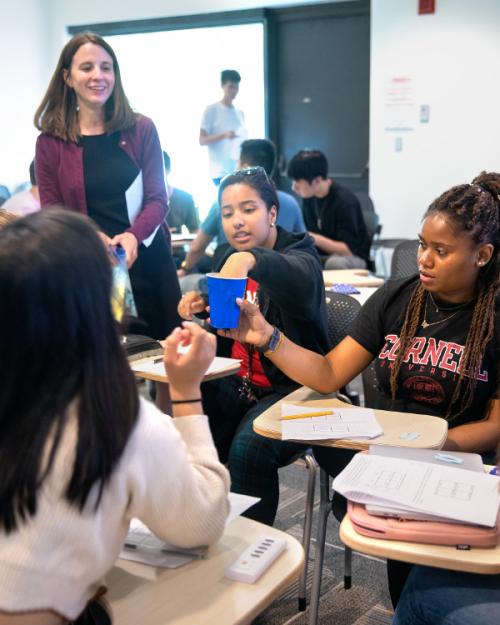Will the processes and approaches designed to maximize student learning in the physics lab also work in a biomedical engineering seminar? What about a biology field course or an engineering project?
Researchers with the new Cornell Interdisciplinary Education Research (CIDER) Postdoctoral Cohort will soon be positioned to look into such questions.
Funded by the National Science Foundation, CIDER will bring three scholars interested in Discipline-Based Education Research (DBER) to the university to advance understanding of teaching and learning in STEM fields. The postdocs, scheduled to arrive in fall 2025, will have ample opportunity to share findings and projects across disciplines, from physics to engineering to economics and more.
Typically focused on undergraduate education, DBER uses data-driven outcomes to explore what students are learning and how to help instructors promote student learning, said Michelle Smith, the Ann S. Bowers Professor of ecology and evolutionary biology and associate dean for undergraduate education in the College of Arts and Sciences (A&S).
“DBER is often described as a combination of disciplinary science content – in my case biology – and social science methods with the goal of advancing teaching and learning,” said Smith, who is principal investigator of the project. “The great thing about this grant is that we will be able to hire postdocs for interdisciplinary research.”
Currently, most DBER is isolated to one topic – for example, DBER biologists studying how students learn genetics. However, undergraduates take courses in many disciplines.
“Having co-PIs in different disciplines who co-advise postdocs gives us an opportunity to explore new questions that are at the nexus of undergraduate education,” Smith said.
The project’s co-PIs, in addition to Smith, are: Allison Godwin, the Dr. G. Stephen Irwin ’67, ’68 Professor of Engineering Education Research in the College of Engineering (ENG); Natasha Holmes, the Ann S. Bowers Associate Professor of physics (A&S); Alexandra Coso Strong, associate professor in the Smith School of Chemical and Biomolecular Engineering (ENG); and Alexandra Werth, assistant professor in the Meinig School of Biomedical Engineering (ENG). All the co-PIs are prospective mentors for the postdocs.
“As one of the co-PIs, I will be deeply involved in various aspects of the CIDER program, including logistics, recruitment and hiring, mentorship and professional development opportunities for the postdocs,” Werth said. “As a ‘switcher’ – someone who completed a traditional STEM Ph.D. and then transitioned to DBER as a postdoc – I am particularly excited to help others navigate this process.”
Engaging with a whole set of mentors, rather than the traditional model of one postdoc working under one PI, will allow the CIDER postdocs to approach questions about student learning and experiences across disciplinary boundaries and use techniques and approaches from multiple fields, Godwin said.
“Cornell’s DBER community continues to grow across campus at an exciting rate,” said Holmes, who was the university’s first DBER hire. “The faculty involved in the community have a complementary set of research interests that effectively fosters collaboration, while also supporting a wide range of projects.”
The CIDER postdocs will also receive professional development support. They will have connections to the Center for Teaching Innovation, the Engineering Learning Initiatives program, the Office of Postdoctoral Studies and Office of Inclusion and Student & Faculty Engagement in the Cornell Graduate School.
“Having programs like these on campus means we can prepare these postdocs for a variety of career opportunities,” Smith said, adding that the CIDER postdoc program also will broadly impact the postdoc mentoring system across Cornell DBER, which will affect future scholars beyond this grant.
As part of the grant, Cornell will host the Upstate New York DBER conference in the summer of 2026, gathering educators from community colleges, primarily undergraduate institutions and research universities in the same place.
“We would like for this event to be a blend of individuals who want to improve educational experiences in STEM courses, which have historically had lower rates of participation from women, Black, Latiné and Indigenous students,” said Godwin. “By engaging both researchers and practitioners, we can find ways to better bridge the research-to-practice gap that often exists in DBER spaces. I hope this event will strengthen ties between universities and colleges in this area of the country and provide a network to share innovative ideas for improving STEM.”
Werth said that upstate New York is a leader in STEM education, with a significant and growing population of discipline-based education researchers, including those in the Rochester Institute of Technology's Center for Advancing Scholarship to Transform Learning (CASTLE), and the University at Buffalo’s Department of Engineering Education.
It's easy for DBER studies to become siloed within disciplines or isolated to a single classroom, Smith said. But Cornell’s collaborative community, boosted by the CIDER grant, provides the opportunity to grow in new directions: “Supporting the postdocs will be the initial catalysts for this new approach,” she said.

NSF-funded postdocs to research education across disciplines
Discipline-Based Education Research




